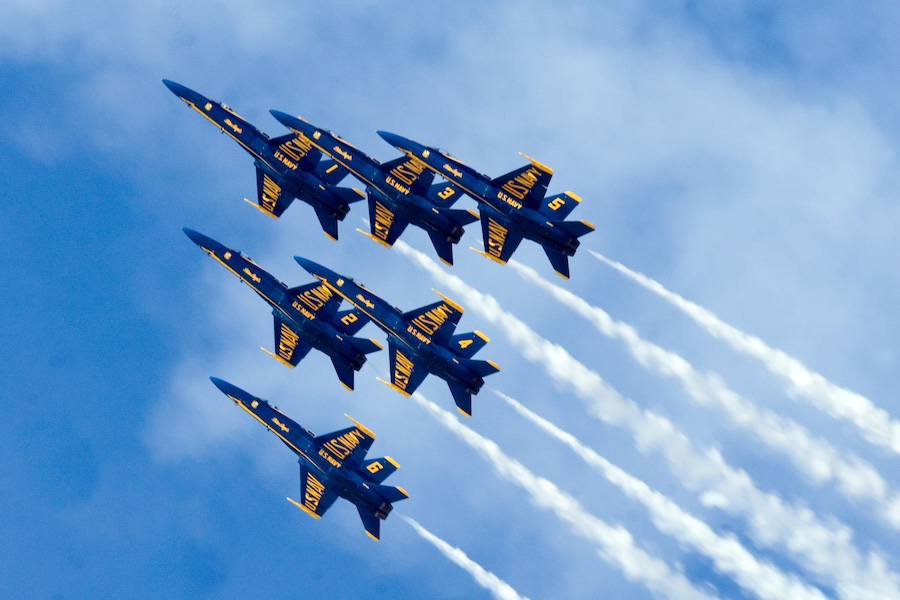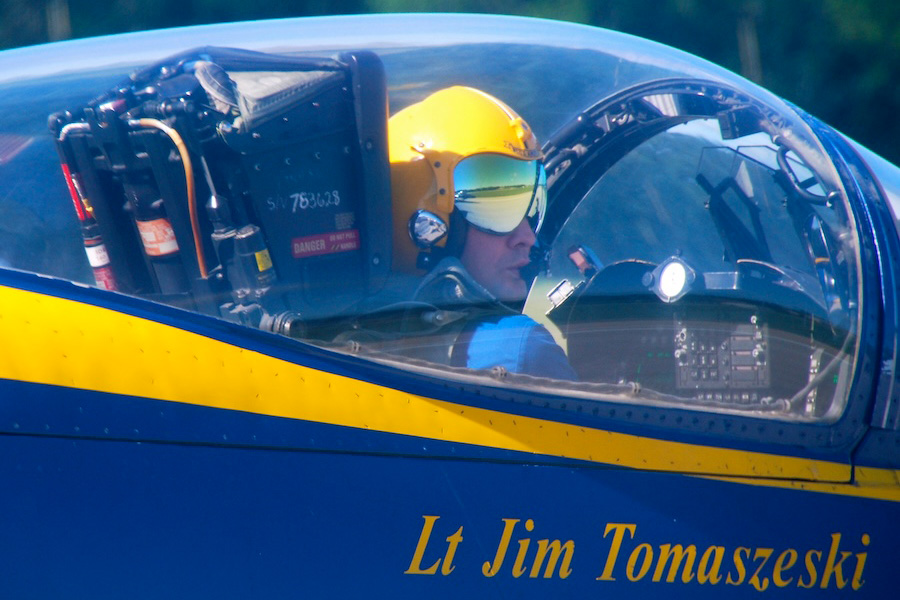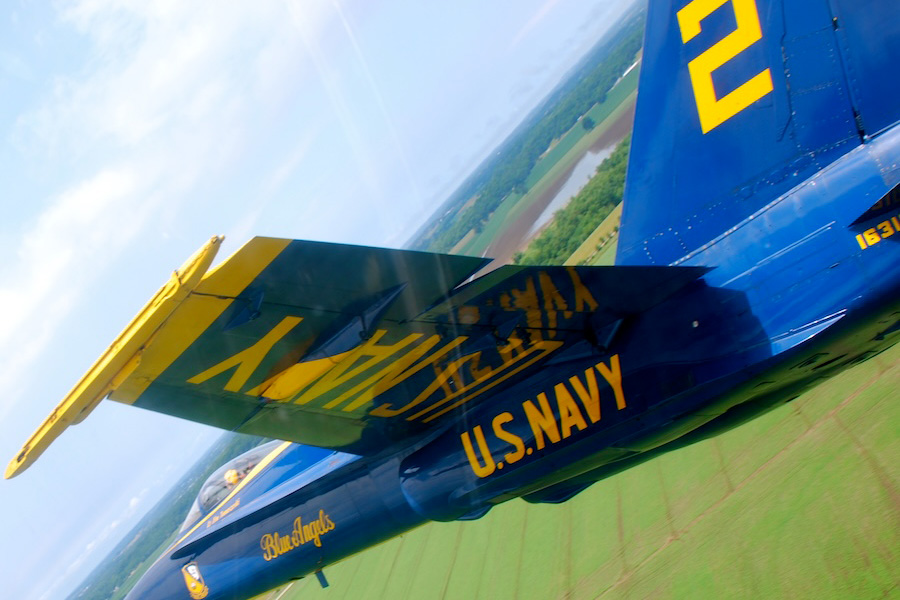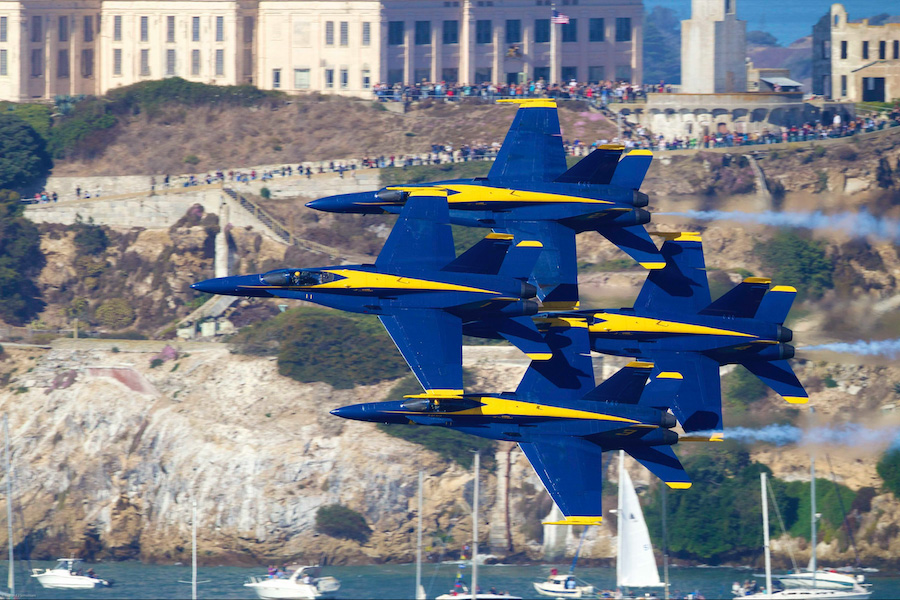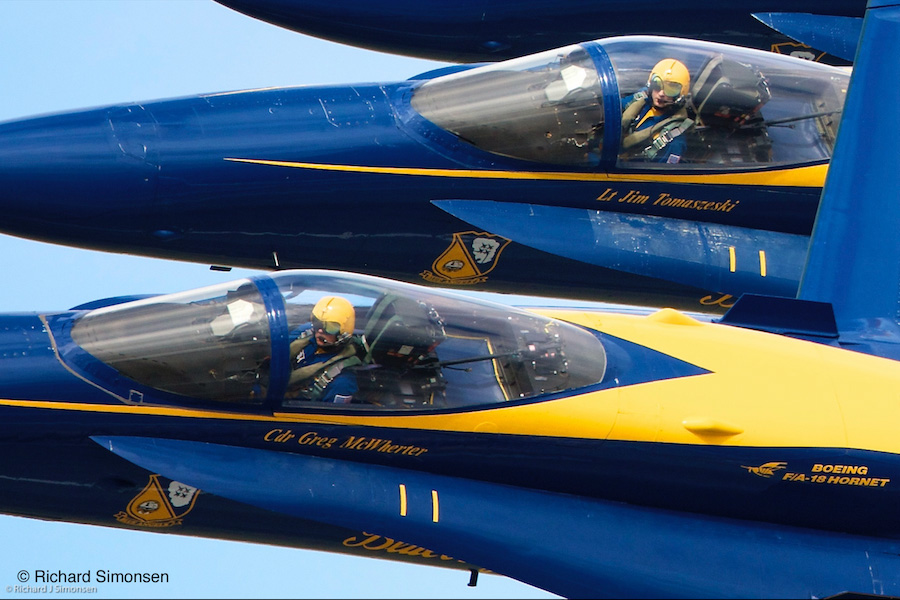Alumni Spotlight: Jim Tomaszeski
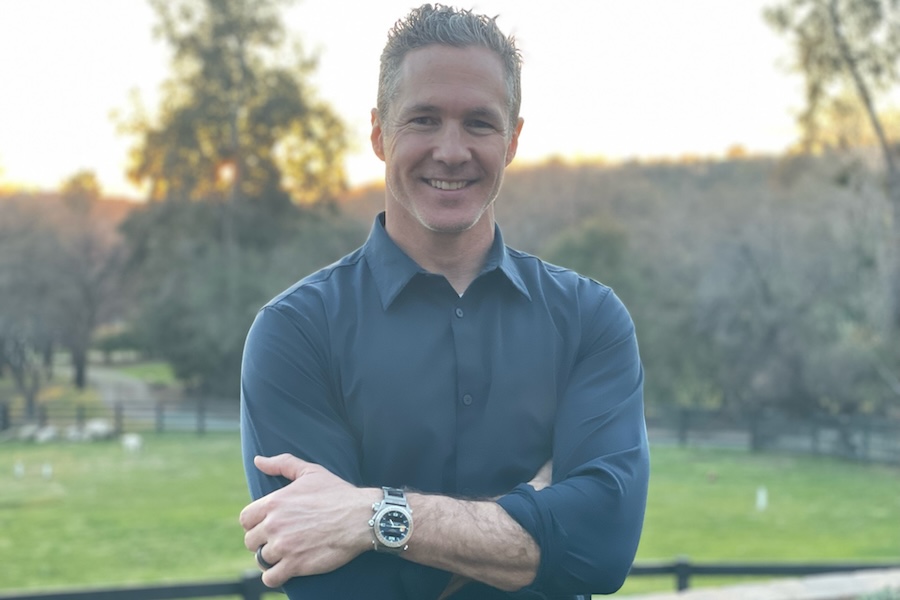
Jim Tomaszeski graduated from Florida State University in 2000 with a bachelor’s degree in creative writing from the Department of English, part of the College of Arts and Sciences. Upon graduation, Tomaszeski reported to Pensacola, Florida, for Officer Candidate School where his 20-year career in the U.S. Navy began. From 2009 to 2010, Tomaszeski flew in the Blue Angels, an elite Navy flight demonstration squadron famed for its technically complex performances, often with only 18 inches separating each of the six fighter jets. In 2015, Tomaszeski earned his master’s degree in aeronautics from Embry-Riddle Aeronautical University in Daytona Beach, Florida. Currently, he flies for FedEx Express as a 777 first officer.
Tell us a bit about your background, where you’re from, and what brought you to FSU.
I am originally from Orange Park, Florida, where my dad served as a Navy aviator, flying helicopters out of Naval Air Station Jacksonville. During high school, his career took us to California, but I knew I eventually wanted to get back to Florida. My older brother was already enrolled at FSU, and after visiting him, I knew FSU was for me. As someone who was not sure what to study, I immediately gravitated to FSU’s diverse range of academic programs.
What inspired you to major in creative writing? How did your studies prepare you for a career in the Navy?
My decision to pursue an English degree and become a Navy pilot are part of the same story. Originally an art history major, I switched to English after spending the Fall 1998 semester in Florence, Italy. The FSU Florence Study Center had British newspapers lying around, which featured some of the only English news available in the city at the time. One day, I read about Operation Desert Fox, a joint effort between the U.S. and the U.K. I already had inclinations to join the Navy because of my dad’s service, but I was not sure if it was something I truly wanted. Immersing myself in a different environment and getting to know myself better allowed me to confidently choose the Navy.
Once I made that decision, I had another one ahead of me — STEM or liberal arts? I was interested in both, but I ultimately chose liberal arts because I felt like it would better prepare me to eventually pursue a master of business administration degree or a law degree. I also valued the critical-thinking skills an English degree teaches, and I use what I learned in my undergraduate English classes daily.
What are some highlights from your career in the Navy?
As I look back on my Navy career, what sticks out most is not flying the F/A-18 off an aircraft carrier or at air shows — it is the wonderful people I was fortunate enough to work alongside. Joining shortly before the 9/11 attacks, I was profoundly impacted by the caliber of the dedicated and motivated individuals who chose to serve.
Homecomings are also a big highlight. After my last carrier deployment, my two boys nearly doubled in size! My wife Rachelle held down the fort all by herself, so finally being home and together as a family — that is what you remember.
Tell me about your experience as a Blue Angels pilot.
The Blue Angels are a volunteer-only squadron, and there is a long list of prerequisites you need to have, which narrows it down to about 50 candidates vying for two to three pilot spots each year. During the application process, I attended several airshows to meet the crew force and observe their flight briefs and activities. These were extremely professional, detailed, and similar to the pinpoint accuracy of briefs at TOPGUN.
Once selected, I flew for two years in the No. 2 position as the Right Wingman. A tour with the Blue Angels is a busy one, as the squadron is constantly on the road most of the year, so mindful team building is crucial. The flying can be learned by any disciplined aviator, but the ability to work together cohesively in a demanding environment is the biggest challenge. We worked hard each day to perfect our maneuvers and would tape everything to watch and critique ourselves in the debrief. The team is also involved with local schools and hospitals as well as Make-a-Wish; the community outreach aspect was the most impactful part of the experience.
How did you come to be a 777 first officer for FedEx Express?
I left the Navy in 2020 when COVID-19 was in full swing. The pandemic hit passenger airlines hard, but cargo airlines were hiring to keep up with the increase in online shopping. I was very fortunate since FedEx has a great reputation and has long been a career destination for many pilots. Now, I mostly fly international trips all over the world, which is my favorite part by far, but the long flights make sleep and caffeine management an essential skill!
What are some organizations or university-related experiences that supported your success at FSU and beyond?
Through FSU’s International Programs, I studied art history in Paris the summer before I spent a semester in Florence. Studying abroad is a rare opportunity, and each program had a lasting impact on me. In the Navy, I lived abroad in several different places including Japan and the Middle East, and studying abroad gave me the foundational confidence I needed to do so.
What was your favorite place on campus?
Besides my brother’s apartment, where I would go for free food, I frequented the Dr. Bobby E. Leach Student Recreation Center. It was close to every apartment I had in Tallahassee, and I have fond memories of going to the gym with friends.
What advice do you have for current students?
Take advantage of the resources at FSU, like the Career Center. Make an effort because it takes an effort. You are only a student for a short period of time, so make the school work for you!

